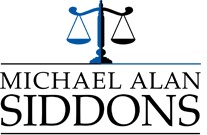Chapter 13 bankruptcy, also known as a “reorganization bankruptcy,” is the second most common type of bankruptcy utilized by consumers in the United States. It differs from a Chapter 7 bankruptcy in that instead of liquidating a debtor’s non-exempt assets in order to pay off creditors, Chapter 13 allows debtors to keep their property while their debts are reorganized in a way that allows them to make one monthly payment.
This type of bankruptcy is generally utilized by debtors who make a consistent monthly income and is often used specifically to stop foreclosure on a person’s home.
Categories of Debt in Chapter 13 Bankruptcy
In a Chapter 13 bankruptcy, the debts owed to creditors can fall into one of three categories – priority, secured, and unsecured. Below is some information about these three categories.
Priority debts
Priority debts are granted special status by the law and include most tax debts and the costs associated with the bankruptcy proceeding itself. These debts must be paid in full over the course of the Chapter 13 plan.
Secured debts
These debts are those that are tied to a certain piece of property that acts as collateral. Common examples of secured debts include a car loan or a mortgage. In order to keep this type of property in a Chapter 13 bankruptcy, the loan must be paid off during the period of the plan (there is an exception for ongoing debts, such as a mortgage) or you must continue paying on the debt outside of the Chapter 13 plan.
Unsecured debts
These debts have the lowest priority in Chapter 13, and often include debts such as personal loans, credit cards, medical expenses, and unpaid utility bills. The amount that a debtor pays back on these kinds of debts depends on his or her disposable income and the value of his or her nonexempt assets. Many unsecured debts are discharged at the end of a Chapter 13 bankruptcy.
Contact the Law Office of Michael Alan Siddons Today to Schedule a Free Consultation
Bankruptcy can be a useful tool for people who are struggling with meeting their financial obligations each month. The best way to ensure that you receive the maximum benefit from filing for bankruptcy is to speak with an experienced attorney as soon as possible. Attorney Michael Alan Siddons is a skilled bankruptcy attorney that represents clients in New Jersey, Pennsylvania, and Maryland.
To schedule a free consultation with Mr. Siddons, call our office today at (610)-255 7500 or send us an email through our online contact form.











